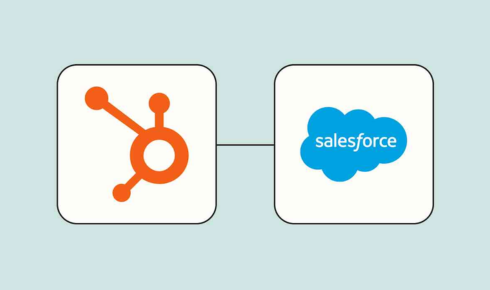
Why HubSpot Integration Partners Are Key to a Successful Salesforce Integration
Introduction
In the competitive landscape of modern business, efficient and streamlined processes are crucial for staying ahead. One of the most impactful ways to optimise your customer relationship management (CRM) is through the integration of HubSpot with Salesforce. While both platforms offer unique advantages, combining them can be a game changer—provided it’s done correctly. Here’s where HubSpot integration partners come into play.
You might be wondering: “Why do I need an integration partner for HubSpot and Salesforce?” The answer is simple—proper integration requires a mix of technical expertise, strategic planning, and customisation to meet your specific business needs. Let’s dive deeper into why HubSpot integration partners are essential for ensuring your HubSpot and Salesforce integration is a success.
1. What is HubSpot and Salesforce Integration?
Before we get into the role of HubSpot integration partners, let’s take a step back and look at what HubSpot and Salesforce integration entails.
At its core, HubSpot and Salesforce integration is the process of connecting these two powerful platforms so that data flows seamlessly between them. HubSpot’s inbound marketing tools and Salesforce’s robust sales and service management features can work together, enabling your teams to align their efforts, track customer journeys more effectively, and close deals faster.
Here’s a quick breakdown of how the integration works:
- Salesforce handles customer relationship management, tracking leads, opportunities, and customer data in real time.
- HubSpot focuses on marketing automation, helping you attract, nurture, and convert leads with tools like email marketing, workflows, and landing pages.
By integrating the two, you can ensure that the data flows from marketing to sales effortlessly, and vice versa. This integration gives your team a holistic view of the customer journey and allows for more personalised outreach.
2. Why HubSpot Integration Partners Are Essential for Success
The seamless integration of HubSpot and Salesforce is no small feat. It involves mapping data, syncing workflows, and configuring both systems to work harmoniously together. Without the right expertise, you risk facing integration roadblocks that can cause inefficiencies, data discrepancies, and ultimately, lost opportunities.
This is where HubSpot integration partners come in. These experts specialise in the technical aspects of integration, ensuring that your system works optimally from day one. Let’s explore the key reasons why they’re so important:
1. Expertise and Customisation
HubSpot integration partners are seasoned professionals who understand both platforms inside and out. They can customise the integration to match your specific business processes, ensuring that the flow of data makes sense for your unique needs. Whether you’re looking to sync leads, automate workflows, or create custom reports, they’ll tailor the integration to optimise efficiency.
2. Smooth Data Migration
One of the most critical aspects of integrating HubSpot with Salesforce is data migration. Migrating customer data between two systems can be complex, especially when dealing with large volumes of data. HubSpot integration partners ensure a smooth migration, preventing data loss and ensuring that everything is mapped correctly.
3. Workflow Optimisation
When integrating HubSpot and Salesforce, you’re not just connecting two systems—you’re aligning marketing and sales workflows. An integration partner can help you design and optimise these workflows to ensure that leads are properly tracked, nurtured, and converted. They can create automated systems that reduce manual work, speed up lead handoffs, and improve response times.
4. Ongoing Support and Maintenance
The work doesn’t end once the integration is complete. To keep things running smoothly, you’ll need ongoing support and maintenance. HubSpot integration partners provide continuous monitoring and troubleshooting to ensure your integration works as it should, even as both platforms evolve and release updates.
3. Key Benefits of HubSpot and Salesforce Integration
Now that we’ve explored the importance of HubSpot integration partners, let’s look at the key benefits of successfully integrating HubSpot and Salesforce:
1. Centralised Customer Data
With integration, all your customer information is stored in one place. This centralised data allows your sales and marketing teams to access a 360-degree view of each customer’s journey, from lead generation through to post-sale support.
2. Increased Efficiency
By automating the handoff between marketing and sales, your team can focus on what they do best: engaging with leads and closing deals. No more manual data entry or double handling of information—everything flows seamlessly from one system to the next.
3. Enhanced Lead Nurturing
With integrated workflows, you can create more personalised, targeted campaigns. For example, once a lead becomes a marketing-qualified lead (MQL) in HubSpot, the data is passed automatically to Salesforce, and sales reps can take immediate action. This speeds up lead conversion and improves customer satisfaction.
4. Better Reporting and Analytics
With the right integration, you can gain insights into how marketing activities are driving sales performance. By tracking key metrics in both systems, you can optimise your marketing efforts and sales strategies based on real-time data.
4. How HubSpot Integration Partners Help You Get the Most Out of Your Integration
Working with HubSpot integration partners means you’re not just getting a system that works—you’re getting a system that’s optimised for your business. They will:
- Map Your Processes: Understand your sales and marketing workflows and map them accordingly to ensure the integration works smoothly.
- Integrate Custom Fields: Add custom fields to both platforms to ensure the data that’s important to your business is tracked and accessible.
- Provide Tailored Solutions: Custom solutions help you integrate third-party tools or data sources that are critical to your business.
The right HubSpot integration partners will work with you to continually improve your integration, ensuring that your HubSpot and Salesforce systems evolve with your business.
Conclusion
In today’s fast-paced business environment, having a seamless integration between HubSpot and Salesforce is crucial for streamlining operations and improving customer experiences. However, achieving a successful integration requires the expertise of HubSpot integration partners. These specialists ensure that your systems are customised, optimised, and maintained to meet your business needs.



